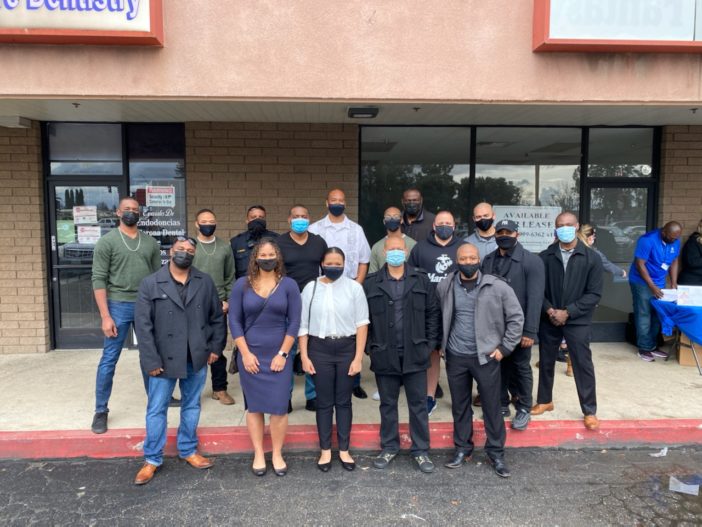Jehvan Crompton, a local 14-year-old boy, was diagnosed with a rare form of leukemia after he went to the hospital for a routine foot surgery in 2019.
To survive, he needs a stem cell transplant.
“He’s a 14-year-old kid who has leukemia. We all signed up because that’s what we do when we became police officers,” said Sgt. David Brooks, who helped organize the group of potential donors. “This is another way to help someone in our community. It doesn’t always require a call into dispatch, a badge or a uniform. Sometimes it’s just giving our time.”
For Brooks and the other officers, the gesture of support is second nature. They spend most of their days asking the community, “How can we help?”
When the Cromptons asked, Bakersfield PD answered.
“There were 17 of us there and it was amazing just to see the majority of our black officers at the event,” Brooks said. “This was really our way to answer the call – we need to take care of each other, and this was a way we could give back. As soon as I told everyone what Be the Match needed, and why… everybody was in – immediately.”
For Kimberly Crompton, Jehvan’s mom, the crowd of people who filled the parking lot brought a smile to her face. She and her family learned about Jehvan’s leukemia in July 2019. He hadn’t had any symptoms to alert them that something was wrong.
“We had no idea … and that’s just the nature of the beast. As a parent, you never want to see your child suffer,” she said. “Jehvan has a rare form of leukemia, and he needs a stem cell transplant … but what we’ve learned is they are looking for a specific genetic type that is more common to find with someone in the same ethnicity. We are black, but we are multiracial. He has Native American, Caribbean, West Indies … it’s a big melting pot.”
Knowing the statistics when it comes to African Americans registered to be donors through Be the Match and seeing the turnout at her son’s event and how the community came together for them, was inspiring for Kimberly Crompton.
“I was in awe when I saw all of the police officers show up and show their support,” she said. “Just to hear them offering their words of comfort and encouragement meant so much to me.”
Perez was thrilled to see nearly 40 people come to the event. Now each of them have been swabbed and added to the Be the Match registry. Perez says she hopes to continue to see ethnic and African American communities represented in Be the Match.
“When a person matches, it most likely matches a person who is the same ethnicity. We try to tell everyone this … we are looking for their DNA twin,” she said.
“All it takes is one.”
For more information or to become a part of Be the Match, visit https://bethematch.org/.
 Behind the Badge
Behind the Badge





